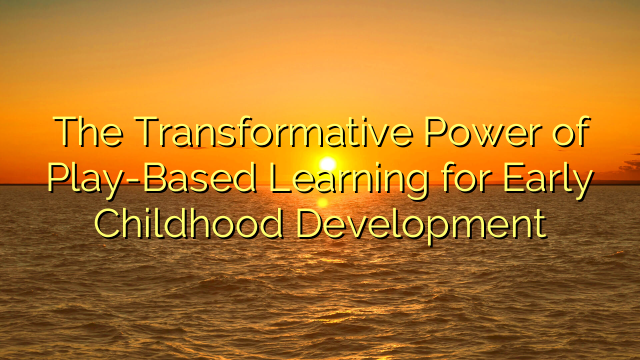Early childhood is a critical phase in a child’s growth, setting the foundation for future learning, behavior, and health. Play-based learning has emerged as an essential component of early childhood development. This approach not only fosters cognitive skills but also encourages emotional, social, and physical growth. In this article, we explore the multifaceted benefits of play-based learning and how it significantly contributes to a child’s holistic development.
What is Play-Based Learning?
Play-based learning refers to an educational approach where children explore and interact with their environment through play. This method engages children in activities that encourage curiosity, creativity, and problem-solving. Unlike traditional rote learning, play-based learning taps into a child’s natural inclination for play, making the process enjoyable and effective.
Cognitive Development Through Play
Enhancing Problem-Solving Skills
Play-based learning promotes cognitive development by encouraging problem-solving. Through puzzles, construction toys, or imaginative play, children face challenges that require them to think critically and develop solutions. These activities enhance their analytical abilities, preparing them for future academic tasks.
Stimulating Creativity and Imagination
Creativity is a natural outcome of play-based learning. When children engage in pretend play, they explore different roles and scenarios, stimulating their imagination. This not only fosters creative thinking but also helps them understand the world around them by relating to different perspectives and contexts.
Developing Memory and Attention Span
Interactive games and activities require children to remember rules, sequences, or patterns, thereby strengthening their memory. The repetitive nature of play also helps increase their attention span, as they remain focused on tasks for extended periods.
Social and Emotional Benefits of Play
Building Interpersonal Skills
Play-based learning often involves group activities, which are vital for the development of social skills. Children learn how to share, collaborate, and communicate effectively with peers. This process helps them build empathy, conflict resolution skills, and the ability to work in teams—key competencies they will need throughout life.
Emotional Regulation and Resilience
Through play, children learn to manage their emotions. Whether it’s the joy of winning a game or the disappointment of losing, play helps them navigate various emotional experiences. Over time, they develop emotional resilience, which is crucial for handling stress and challenges later in life.
Physical Development Through Active Play
Enhancing Motor Skills
Physical activities such as running, jumping, or climbing during play-based learning help in the development of both gross and fine motor skills. As children engage in these movements, they strengthen their muscles, improve coordination, and develop better control over their bodies.
Promoting a Healthy Lifestyle
Active play also encourages children to adopt a healthy lifestyle from an early age. When they engage in physical activities regularly, they are more likely to continue this behavior as they grow older, reducing the risk of childhood obesity and promoting overall well-being.
The Role of Educators in Play-Based Learning
Educators play a crucial role in facilitating play-based learning. Their role involves creating a conducive environment where children feel safe and encouraged to explore. Teachers also act as guides, helping children navigate challenges and making sure that the learning outcomes are met.
Tailoring Activities to Individual Needs
One of the most significant advantages of play-based learning is its adaptability. Educators can tailor activities to meet the needs of each child, whether they are more inclined towards artistic expression or physical exploration. This personalized approach ensures that all children can benefit from play-based learning, regardless of their developmental stage.
The Science Behind Play-Based Learning
Research in child development consistently supports the importance of play in early learning. According to studies, play-based learning stimulates neural connections in the brain, particularly in areas responsible for creativity, problem-solving, and emotional regulation. These neural connections lay the groundwork for academic learning, highlighting the importance of integrating play into early childhood education.
